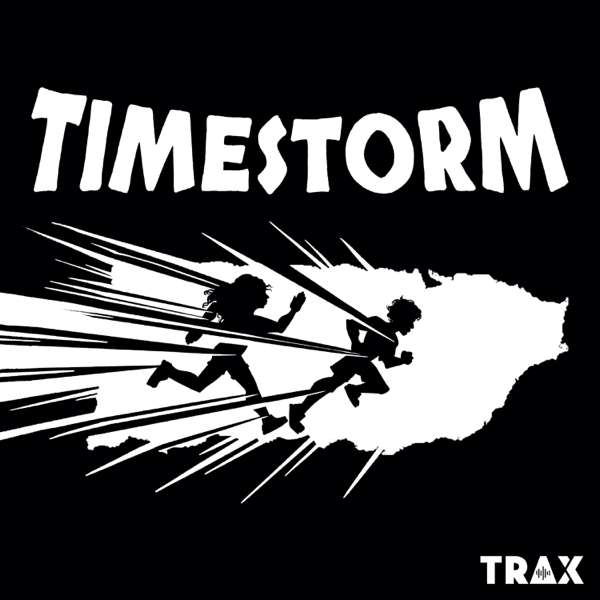Parents deal with many problems; getting-out-the-door-in-the-morning struggles, arguments about when homework will get done, and you might have a child who is chronically late. It can be incredibly frustrating and exhausting to face a parenting problem like this. What parents don't realize is that many of the struggles and battles they have with their teen stem from problems with time management. Time management for teens is a life skill that affects all areas of a child’s life—and the parent’s too! It’s something all parents need to teach their kids but we don’t get much direction on how to do that but that problem is solved right here. Mighty Parenting hosts interview time management for teens expert Leslie Josel. Judy Davis and Sandy Fowler pick Leslie’s brain to find out what stops our teens from having good skills and what we can do about it.
Real Talk: We interact with many people throughout our days and you may see a teen who seems to be struggling, in trouble, or heading for trouble. When a situation like this hits your radar you may wonder what to do; should you approach the teen? Talk to the parent? How will they react? Is it any of my business? These are good questions and exactly what Judy and Sandy are exploring in Real Talk.
A Favorite Quote from the Show:
The key question to ask your teen to help them learn to bridge time is, “What is your plan?”
High Points Interview:
Time management is a brain-based behavior so if your teen is time management challenged then their capabilities are going to be 30% less than their chronological age in the area of that deficiency (your 16 year old will have 15 year old will have 10 year old capabilities).
When a teen has an executive challenge, kids know what to do but can’t do what they know.
Being time aware, able to see time, means understanding how time flows, how long things take and how to set up plans for future events.
One indicator that your child is not time aware is if they function well in school but it falls apart at home. In school they are supported in many ways in seeing time move but that structure doesn’t exist at home.
Students live in 2 worlds. They live in the Now, right now, this moment. And they see the “not now”, the future whether it’s 5 minutes, 5 days, or 5 years. To them, Not Now is waaaay over there, way in the future. Making kids time aware means helping them understand that time exists beyond the now. The breakdown comes in trying to connect Now to Not Now.
When kids are walking out of the house parents tend to use “Oh, by the way” and “Don’t forget”. Never really asking your child, how are you going to remember what I’m asking you?
Parents are busy but she’s laying down the Leslie Law and telling us that we have to spend time teaching our kids to be time aware. This is a crucial life skill and it will impact them way more than the grade they got on their 9th grade test on Mesopotamia.
We need to hang analog clocks, the old face clocks, in every room our teen spends time in. These clocks let kids see time move. The most important room is the bathroom.
The key question to ask your teen to help them learn to bridge time is, “What is your plan?” What is your plan after soccer? What is your plan after school? What is your plan after your shower? What is your plan to get your report done because we’re going to Grandma’s Sunday?
Your brain needs to be exercised just like every muscle in your body.
If you are listing off the things your child needs to do or telling them what to take with them running out the door, the only brain being exercised is yours.
Don’t use Mom Minutes. When we say, “Just one minute” and it’s twenty minutes then it makes it hard for kids to learn to see time. Parents need to respect time and reflect that in the way we talk about it.
How the heck do I teach my kid time management when I’m having trouble with my own? One tip is for the parent to speak their mental processing. Literally speak out loud all the thoughts you run through in figuring out time management. It can help the parent and the child learns at the same time.
High Points Real Talk:
We interact with many people throughout our days and you may see a teen who seems to be struggling, in trouble, or heading for trouble. Adults wonder what to do when they see this.
It used to be that adults in our neighborhood, church, and community would support parents, telling them what their kids were up to or even reprimanding the kids directly. But our culture has shifted and adults are now afraid to get involved with other kids.
Parents have become defensive about their kids and tend erect protective walls if approached.
So what can you do if you see a teen you are concerned about, one who is in emotional pain, in danger, or at-risk? Our response is that personally, we understand there may be backlash, we could upset a neighbor or lose a friend. This would be unpleasant, but we can live with it. What we cannot live with is the fallout that can happen if we don’t say anything.
We can affect the parents’ response and lessen negative fallout in the way we deliver the message. Judy shares ideas for softening the message and helping parents hear it. Essentially, we want to focus on being non-judgmental and come from a place of concern. Do it by being factual, authentic, and letting them know you care.
Wondering whether to say something? Follow the rule of Better Safe Than Sorry.
If our teen brings the concern to us we can help them learn to think through the options. We can help them see various ways to speak to their friend or the parent.
Our Guest:
Leslie is an academic/life coach, an award-winning author and internationally acclaimed speaker. She is the creator of the award-winning Academic Planner: A Tool for Time Management®, a planner that helps students develop and master time management skills, and the author of “What’s the Deal with Teens and Time Management”, a parents’ step-by-step guide to help teach their students the time management skills they need to succeed in school, home and in life.
A respected resource on ADHD and Executive Functioning in students, Leslie writes a weekly column called “Dear Organizing Coach by Leslie Josel” for ADDitude Magazine, and is also a contributing writer for Family Circle Magazine.
She brought “Order Out of Chaos” to life from a very personal mission. Leslie is the mother of a time-and-organizationally-challenged teen who was diagnosed with ADHD. She founded the company 15 years ago with the goal of providing professional organizing, time management and coaching services; parent and family education, products and resources to families and their students to help them bring order out of chaos to their lives.
More from our Guest:
To learn more or connect with Leslie, visit https://orderoochaos.com/
Tips & Info from our Sponsors:
From DASIUM: Raising a teenager can create a lot of worry or anxiety for parents. It’s a whole different world than when they were young. At the core of it you want to have a good relationship—one where they know you have their back and will listen when they need it most. Focus on open communication, listening rather than lecturing or feeling the need to fix it. And do so without judgement.
Still worried? We understand. Teens go through a lot of phases so how do you know if their behavior is a phase or a sign that a problem is growing? Get Warning Signs: A Parenting Guide for Discovering if Your Child is At Risk for Depression, Addiction, or Suicide. Learn what is cause for concern and what will pass. Get information on next steps and ideas for handling problems if they arise.

 Our TOPPODCAST Picks
Our TOPPODCAST Picks  Stay Connected
Stay Connected







